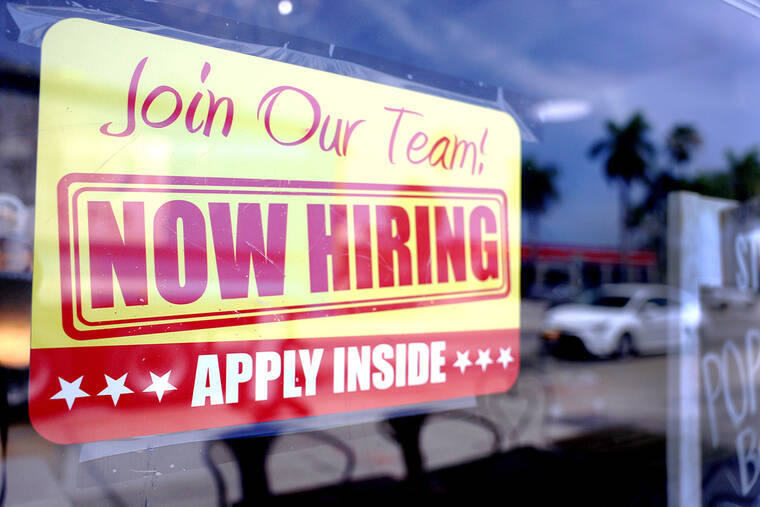It is true. There are people who don’t want to work anymore
The new Dollar General store in my rural Illinois hometown couldn’t open for the longest time because it couldn’t find workers. Apples rotted on the ground at Arends Orchard nearby because the 50-year proprietor couldn’t find help.
How many times have you heard this lament from small business owners? “People just don’t want to work anymore.”
ADVERTISING
Labor force participation as a percentage of possible workers has been trending down in recent decades. One factor out of several possible explanations for workforce reduction? Among the able-bodied in my childhood post-World War II, work was required to eat. Today, it isn’t. Many people, young and not so, have apparently developed lifestyles that support them adequately with no, or minimal, work “on the books,” that is, in a regular job.
I am fascinated, for example, by a family that lives on the edge of my hometown. For at least two decades, the nine members of this “family” have been existing largely to play video games, it seems, and laze around the two-bedroom ranch home that is deteriorating around them, not so slowly. One of the three men in this family has fathered three children by three mothers, some of whom live in the home.
(This account is based on an interview with the father of the 50-ish “patriarch” of the family. My source lets his son and clan live there rent-free, though his patience has reached its end. The source lives elsewhere. Two social worker friends in the area tell me this type of family is far from unique in rural Illinois.)
How does the family support itself? Two of the women are certified nursing assistants and work a few hours a month each at nursing homes. Two of the men are skilled at digital technology. Infrequently, they work off the books, repairing computers. The two seemingly able-bodied men are also on disability, for mental health and physical reasons, respectively.
Then, there is the panoply of nonprofit and government support programs. Food is largely supplied with visits to more than one area food pantry each month and by the Link card, which debits the government for food for the low-income.
There are also the federal and Illinois income tax credit programs, which provide tax reductions and in Illinois cash tax refunds for individuals whose work income is below a certain level. There are also utility bill, rental assistance and other support programs for the low-income.
I am not opposed to any one of these programs, nor to helping people in need. And I know many single parents struggle mightily to make a decent life for themselves and their kids, even with these programs.
I simply point out that strategies can be — and are — developed by some to create an alternative lifestyle that avoids participating in conventional work.
There are indeed “costs” involved in working, which are obvious, but not often thought about, at least not by me. For example, work hours take away from opportunities to play video games, as well as pursue other avocations. Work may also be stressful, hard, unrewarding, boring and exhausting.
The result of the work or no-work conundrum may be, rationally for some, to opt for no work. This doesn’t seem fair to those who work and indirectly support those who don’t.
According to the U.S. Chamber of Commerce, our nation’s labor force participation rate declined steadily from 67% in 2000 to 63% this year. By my back-of-the-envelope reckoning, each percentage point of difference represents about 2 million potential workers who weren’t participating. Thus, if we were back at year 2000 levels of labor force participation, there would be roughly 8 million more Americans working today than are doing so.
What to do? Options range from kicking people off the dole to making work more attractive, with higher pay and better workplace environment. Another option that I think bears more discussion: Admit that adults have a right to an alternative, de minimis work lifestyle, yet calibrate their government and other benefits to the value they add to society. Little value added equals few benefits. For example, at one time, volunteering in one’s community was required in return for food stamps.
People who don’t want to work should not live off the sweat of our brows.


